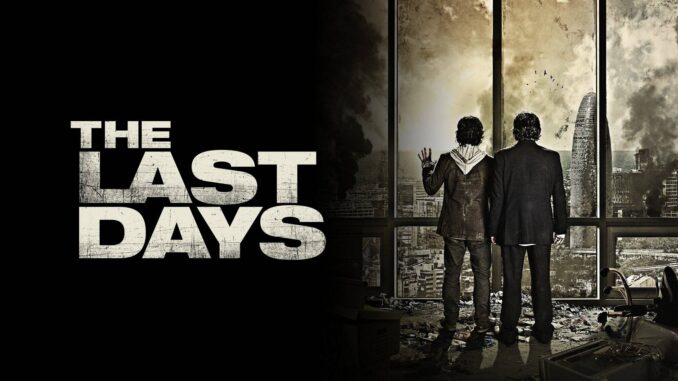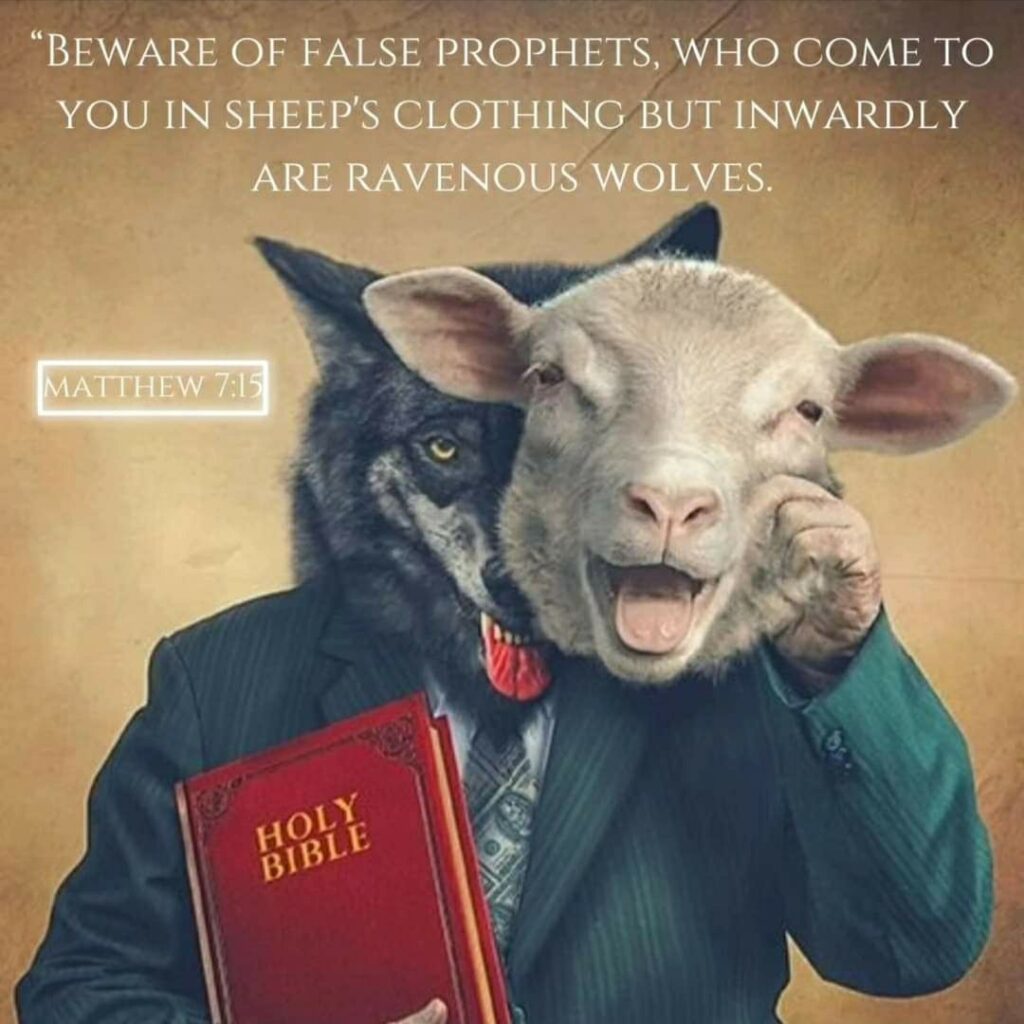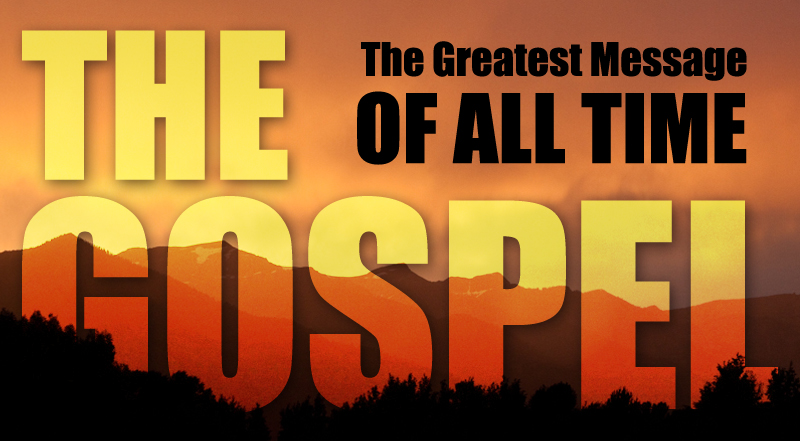
Revelation 13 paints a dramatic picture of the last days: a counterfeit trinity that rises to oppose God and His people. This prophetic chapter introduces three figures—the Antichrist, the Beast, and the False Prophet—working together under the dragon (Satan) to deceive the nations. When we compare Scripture with history and current events, we begin to see how these powers are manifesting in our world today.
The Antichrist: The Papacy

Throughout history, many reformers identified the Papacy as the Antichrist described in Scripture. Why?
- Claiming divine authority: The Pope claims titles and privileges rightly belonging only to Christ, even being styled “Vicar of Christ”—a substitute for Christ on earth. This is the very essence of Antichrist (1 John 2:18), meaning “in place of Christ.”
- Changing times and laws: Daniel 7:25 says the Antichrist will seek to “change times and laws.” The Papacy has altered observances and elevated church tradition above God’s commands in practice, replacing the biblical Sabbath with man-made traditions.
- Persecution of saints: For centuries, the Papacy used political power to persecute those who resisted its authority, fulfilling Revelation 13:7.
But there is more. The Papacy has historically taught that the Roman Catholic Church has replaced Israel—a doctrine commonly called replacement theology. According to that view, God has set aside ethnic Israel and transferred Israel’s covenantal promises to the institutional Church. A related long-term ambition amongst some in Church history has been the claim to authority over the Davidic legacy in Jerusalem—the suggestion that the Pope should occupy David’s throne in some earthly, ecclesiastical sense. This theology and ambition help explain why the Roman Church historically persecuted Jewish people:
- In the Middle Ages, Jews were confined to ghettos, deprived of civil rights, and blamed in Christian rhetoric for the death of Christ.
- During the Spanish Inquisition, many Jews (and conversos) were forced to convert, tortured, or executed when suspected of secretly holding to their faith.
- In the Crusades, Jewish communities in Europe and the Levant were massacred alongside Muslim populations in the fever of religious warfare.
- In various European eras, Church-endorsed antisemitic teaching and social exclusion left Jews vulnerable to more extreme violence and discrimination.
This persecution was tied to the idea that Jews no longer held covenant status and that the Church (or its visible head) should inherit or claim Israel’s promises.
Yet Scripture tells a different story and demands careful distinction between the House of Judah (Jews) and the House of Israel (the northern tribes).
The apostles (with the important exception of Judas Iscariot) were not Judeans of the House of Judah but Israelites from Galilee in the north. The bulk of the Twelve came from Galilee and the northern tribes — the House of Israel — and only Judas was a Judean. That single, fitting exception serves symbolically: Judas represents the rejection of Jesus by many in Judah, while the other apostles typify the House of Israel’s reception of the Messiah.
This distinction matters because the New Covenant is announced to the House of Israel (see Hebrews 8:8) and was inaugurated through Christ and the apostles — who were primarily of the northern tribes. Judah’s wide-scale rejection of Jesus does not mean God has abandoned His people; rather, God continued His work through Israel’s remnant and then by grafting believing Gentiles into the people of God.
- Scripture declares, “There is neither Jew nor Gentile… for you are all one in Christ Jesus.” (Galatians 3:28)
- Gentile believers are grafted into Israel’s olive tree and become partakers of the promises given to Israel (Romans 11:17).
- Christ fulfilled the shadows and types of the Old Testament, making the Mosaic system a shadow of what is fulfilled in Him (Hebrews 8:13). The New Covenant is written on hearts, not stone.
Therefore, Israel and the Church are not two disconnected peoples. Through the apostles of the House of Israel and the new birth in Christ, the promises have continued and expanded into what we call New Covenant Israel — one redeemed people where Jew and Gentile are united in Messiah. This biblical reality stands in direct opposition to any ecclesiastical ambition that would replace or usurp God’s purposes for His people.
The Beast: Extremist Islam

Revelation 13 also describes a Beast with global power, blasphemous speech, and violent persecution of the saints.
Many students of prophecy see a parallel between that Beast and radical, extremist Islam — not Islam as a whole, but the violent ideological movements that seek to impose a theocratic order by force.
- Power and Authority: The Beast receives power from the dragon (Satan) and has authority over nations (Revelation 13:7). Extremist Islamist movements have sought political domination by terror and conquest, declaring the goal of a global caliphate.
- Persecution of the Saints: The Beast makes war with the saints. In our day extremist groups target Christians, Jews, atheists, LGBTQ people, and others who refuse to submit — often with brutal violence and ethnic or religious cleansing.
- Global Influence: The Beast’s influence is global. Though extremist Islam is a minority within the Muslim world, its violent impact, forced migrations, and political destabilization have worldwide consequences.
The Numbers Matter
There are about 1.4 billion Muslims worldwide. Estimates commonly cited suggest that roughly 75% are peaceful, leaving up to 25% who align with or tolerate extremist ideology. If that upper-range estimate were realized, it would mean as many as 300 million individuals who, in some measure, support or are sympathetic to extremist Islamist aims — a figure large enough that the peaceful majority can be sidelined or made irrelevant to the extremists’ agenda in practice. The reality is that even a determined minority with zeal, resources, and networks can wield outsized influence and inflict catastrophic harm.
The Eschatology Behind It
A key to interpreting biblical prophecy in this context is understanding Islamic eschatology. Many Muslims expect the coming of the Mahdi, a messianic figure who, in some strains of belief, will restore Islamic rule and justice. Certain extremist ideologues politicize that hope: they see the existence of a Jewish state as an obstacle to their eschatological timetable. For these militant factions, the disappearance or defeat of Israel would remove a barrier to the Mahdi’s appearance and the establishment of an Islamic world order.
This is why phrases and chants that deny Jewish claims to nationhood — and that in some contexts call for the removal of Israel “from the river to the sea” — are viewed by extremists as part of the militant path toward their end-time goals. For some violent groups, that trajectory becomes genocidal in intention: the elimination of Jewish sovereignty so an Islamic messiah can rise and impose Sharia globally.
Their aims are not limited to Israel: the agenda of militant Islamist movements has, at times, explicitly included the forced conversion or extermination of Jews, Christians, secularists, LGBT people, and any others who resist submission — enforcing conformity to their vision under Sharia law. This coercive, dominion-seeking spirit lines up with the Beast of Revelation: demanding allegiance, persecuting dissenters, and seeking worldwide authority.
The False Prophet: The UN and WEF

Revelation 13:11–15 introduces a second beast — the False Prophet — who looks like a lamb but speaks like a dragon.
Revelation 13:11–15 introduces a second beast — the False Prophet — who looks like a lamb but speaks like a dragon. This figure represents a deceptive authority that appears peaceful while promoting the agenda of the Antichrist and the Beast.
The United Nations (UN) and the World Economic Forum (WEF) exemplify this role in our day:
- Global deception: They speak the language of peace, unity, sustainability, and human rights, while advancing solutions that are human-centered and, in many ways, secular to the core.
- Control of nations: Through advocacy for digital ID systems, centralized policy frameworks, economic instruments, and regulatory regimes, they promote structures that can be used to control trade, travel, and access to resources — echoing Revelation 13:16–17 where allegiances determine one’s ability to buy and sell.
- False hope: By promising protection, climate stability, equality, and security, they encourage nations to trust institutions more than God.
And the deception goes further:
- Extremist man-made climate ideology: Climate policy has been pushed in ways that demand radical shifts in energy, agriculture, and industry. When implemented without regard for justice and truth, such programs give institutions unprecedented leverage over livelihoods, food supply, and national priorities. That leverage can be used to compel behavioral conformity and expand centralized power.
- Extremist gender ideology: Global promotion of comprehensive gender ideology redefines the foundations of marriage, family, and identity. When moral categories are reshaped by institutional fiat, entire societies are reoriented away from biblical norms and toward a human-constructed ethic.
- Population reduction policies: Influential voices within elite globalist circles, including some associated with forums of global governance and policy influence, have spoken or pushed policy in ways that favor lower birth rates, limits on family size, or interventions that could, if pursued radicalizedly, lead to rapid population decline. The claim that these elites seek to reduce the world population by billions over a short period is an interpretation many Christians read into policy rhetoric and initiatives that constrain fertility, medical choice, food distribution, and mobility.
Taken together, these tools — climate policy used as coercion, gender ideology used to reshape moral foundations, and population-control measures used to shrink populations — form a coordinated pathway toward an ever-more centralized global authority. Under the guise of peace, safety, and sustainability, a One World Government and even a One World Religion could, in practice, be assembled: moral and economic systems that coerce allegiance away from Christ and toward human institutions.
Prophetic Convergence: Matthew 24 and Unprecedented Persecution
Jesus warned of the worst tribulation the world had seen: “For then there will be great tribulation, such as has not been from the beginning of the world until now, no, and never will be.” (Matthew 24:21). The convergence of a coercive global governance structure (the False Prophet), an authoritarian ideological bloc (the Beast), and a religious-political rival claiming ultimate authority (the Antichrist) points to exactly that kind of unparalleled persecution.
Revelation 13’s picture of enforced allegiance, economic exclusion, and lethal persecution lines up with Jesus’ warnings in Matthew 24. Those who refuse the mark, the worship, and the compliance of the counterfeit trinity will face pressure, exile, and ultimately martyrdom on a scale unseen in human history. The False Prophet’s programs — under the pretexts of safety, sustainability, and human rights — prime the world to accept controls that will be weaponized against those who will not bow.
Revelation 14: Hope, Judgment, and God’s Final Victory

But Revelation does not end with despair. Chapter 14 immediately follows the horrors of Revelation 13 with a vision of God’s faithful remnant and the righteous judgment that follows.
- Revelation 14 shows the Lamb standing on Mount Zion with the 144,000 and a great multitude saved from the tribulation — symbols of God’s protected, redeemed people.
- It announces the proclamation of the eternal gospel and the harvest of the earth: God separates the wicked from the righteous and executes righteous judgment on the Beast, the False Prophet, and all who took their mark.
- God’s justice is sure; the counterfeit trinity is temporary. The end of Revelation 13’s persecution leads directly to Revelation 14’s vindication and the ushering in of final judgment that culminates in Christ’s uncontested reign.
This is not merely a theological footnote — it is the promise that the suffering of God’s people is not the last word. Judgment will fall on oppressive, idolatrous systems, and God will establish His righteous order.
An Exhortation: Proclaim the Gospel of the Kingdom

If you are a believer today, this prophetic panorama brings both urgency and purpose.
The rise of the counterfeit trinity — religious falsehood, militant theocracy, and globalist coercion — calls for a gospel response:
- Proclaim the Kingdom to all nations. Jesus commanded the gospel to be preached to every people. The gospel of the Kingdom is the antidote to false promises of safety and salvation offered by power, ideology, or global institutions. Preach repentance and faith in Christ: the only way to be saved from coming wrath.
- Make disciples boldly and lovingly. Teach the full counsel of God, baptise, and equip churches to stand firm in persecution. The new birth in Christ unites Jew and Gentile into New Covenant Israel — and that people must be strong and loving in witness.
- Live as lights in a dark age. Walk in holiness, truth, and courageous compassion. Resist coercion where conscience and Scripture demand refusal, but also show the world the love and mercy of Christ.
- Pray for the hastening of the end. Scripture teaches that the proclamation of the gospel to the nations precedes Christ’s return (Matthew 24:14). As we proclaim the Kingdom, we participate in God’s timetable — longing for the day when Christ returns to set up His millennial Kingdom, a thousand years of peace under the righteous rule of the true Son of David.
The mission matters. The gospel is not merely personal therapy or private assurance — it is the message that fulfills God’s purposes for mankind and ushers in the end for which we all wait. Proclaiming the Kingdom is the work that brings about the very consummation we long for: Jesus returning to make all things new and to establish His millennial Kingdom of peace.
The Call to Believers

Revelation 13 is not meant to terrorise God’s people but to prepare them.
These powers — the Papacy as Antichrist tendencies in history, extremist Islam as the Beast in its persecuting manifestation, and the UN/WEF-style globalist systems acting as the False Prophet — are part of a larger spiritual war against Christ and His Church.
But take courage:
- Jesus has already won the decisive victory by His death and resurrection.
- Believers are called to endure, resist deception, and remain faithful to Christ even in the face of persecution.
- The kingdoms of this world will become the kingdom of our Lord and of His Christ (Revelation 11:15).
The counterfeit trinity will rise, but it will fall. Revelation 14 assures us of God’s final judgment and the vindication of the saints. Our task now is to proclaim the gospel, make disciples, and live as lights — so that the end of all this will come and Jesus will return to set up His millennial Kingdom of peace.
